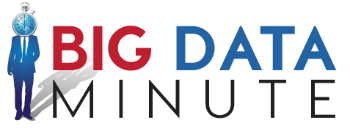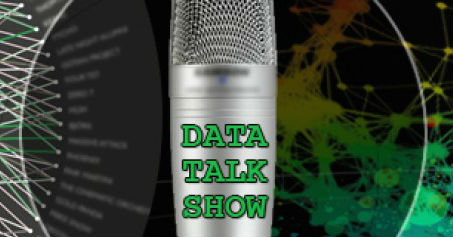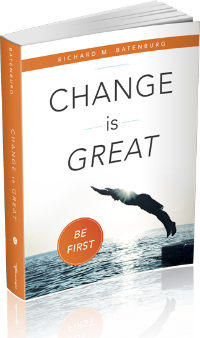
by Stephanie Rabinowotz | Oct 28, 2015 | Big Data, Predictive Analytics
Ever wonder how much Americans actually end up spending on Halloween?
Are you sure you want to know?
It is pretty terrifying…
$7.4 Billion
(Dun Dun Duuuuuh!)
How do you know that? You may ask, well this is where Big Data comes in. The National Retail Federation conducts a survey each year to learn about consumer habits surrounds Halloween. This survey provides the NRF with the data they need to determine spending patterns.
This sort of collected data is what informs stores on which brands of candy to stock up on and how much they should expect to make. Many stores rely on the holiday season to make the majority of their yearly revenue, which is why it is important to study the habits of consumers. Stores want to make as many sales as possible which is why it is crucial for stores to know what their customers want in regards to candy, costumes and decorations.
To understand just how much money these stores are making, lets talk more horrifying data about American spending.
Each Halloween Americans spend,
- $2.8 Billion on costumes. More money is spent on adult costumes than for kids!
- $350 Million on pet costumes…. yes costumes for your furry friend.
- $2 Billion on decorations…. I hope people are reusing them the next year!
- $2.2 Billion on candy. Dentists will be getting a flood of new clients soon!
Although these numbers are astounding, Halloween is an American tradition that 68.5% of our nation celebrates. It is a spooky time of year where people get to be someone or something other than themselves. Kids learn how to share precious possessions such as candy and adults get to excite in some scares.
See how else Big Data is helping the retail industry learn about consumers and better service their needs.

by Stephanie Rabinowotz | Oct 21, 2015 | Big Data, Save With Data
With today being “Future Day” due to October 21, 2015 being “the future” in the movie Back To The Future directed by Robert Zemeckis, it has got me thinking about Big Data and the future.
Without Big Data would we have achieved many of the predictions of the future made in the Back To The Future movie?
Where will Big Data take us by 2030?
With Big Data infiltrating most industries these days, we can bet that it will greatly effect the way we live by 2030. Healthcare is being revolutionized with better patient records, communication between hospitals and the CDC to control the spreading of epidemics, and even the race to cure cancer s being aided by big data. Transportation is evolving with better taxi apps and the beginning of self driving cars. Our own homes are even being upgraded by big data, with an improving real estate system and the ongoing progress in the idea of a “connected home”.
These are just a few of the different areas Big Data is making an impact, so what does this mean for our future?
What will daily life be like?
Are our jobs going to be taken over by computers?
My predictions for 2030 are as follows,
- Doctors will have access to thousands of patient records with the touch of their finger. There will be a digital library that can analyze symptoms and present multiple similar cases, the steps taken and the percentage of positive outcome. This will decrease the amount of tests needed to diagnose symptoms and ultimately save the patient a lot of money and the doctor a lot of time.
- Houses will be equipped with smart devices that communicate with one another to save energy and control routine actions such as turning a light on or off automatically. Houses will be able to tell when the owner is about to be home and automatically kick on the heat or air, turn on the lights, unlock the doors and who knows they may even make you cup of coffee!
- Transportation will be drastically improved with self driving cars and more efficient taxi services such as Uber. Uber will be able to track a frequent customer’s debit transactions to know when they close out a tab close to closing time in a bar. This will allow the Uber driver to be outside of the bar and ready for when the customer stumbles out.
- Shopping will be more than likely completely different. With the way large stores track consumer habits I wouldn’t be surprised if the stores could communicate with our smart homes to determine which foods or household products we are low on and automatically deliver them to our front door by most likely a drone.
Does this mean we are going to start losing our jobs to automated technology? Yes and no. Sure some jobs will be taken over by computers because it makes the most sense, it is most efficient. That doesn’t mean everyone is going to be out of work. All of these technologies and programs must be monitored and serviced. I think in the next fifteen years we are going to see a major shift in our educational departments towards more technological training. We will need to have more people who are proficient in the new technologies to keep up with any of them. There will be a lot of jobs created to both monitor and service these technological advances.
Will any of this happen by 2030? Will it happen at all?
Who knows, but humans have never ceased to amaze me with their ability to create new and exciting things.
Let us know what you think, where will our world be in 2030?
Happy Future Day!!!

by Tara Buck | Oct 18, 2015 | Big Data, Business Optimization, Measuring Results, Save With Data
There is data that can be found in every industry and profession out there- from healthcare to professional sports. If the legal profession is meant to be involved in all of these as well, one question comes to the front of my mind: how can big data help the legal profession?
Let’s start of by stating that there is so much data being collected around the world, and depending on how it is stored, catalogued and indexed, it can take a person days or weeks to sort through. Thankfully in today’s world, however, we have the luxury of programs and computers- computers that can go through this data instantly. Having these programs and applications accessible to us can instantly bring down the cost of analyzing the data, provided you get it into the right format.
Let’s take an example of a case involving product liability. There is a product that is defective. Where does big data come in?
Well now you have all of the records from the creation of that product: the memos, the mockups, and drawings. You have everything that had to do with the end product. You may even have the reviews and testimonials- good or bad. What would have taken months to go through by hand may now take an hour with some computer application. This is because the computer is going to search for certain words, and if the attorney picks the right words and the data is set up in the right format, the attorney now has everything they need at their fingertips. And all in a matter of minutes!
One may think it would be enough as an attorney to go out there and say ‘this product is defective and here are 500,000 complaints about it.’ The reality is that you can actually go one step further with the tools that are now given to us. The attorney can go back into all of the 500,000 complaints and determine what the common component is- and maybe that common component is user error. Then the tables suddenly turn and it is not the product- it is the user!
Big data can now help lead attorneys to answers that they may have never gotten a chance to come to with time and money constraints. Whatever side may be benefitting, information is power and big data is providing just that!

by Rich Benvin | Oct 14, 2015 | Big Data, Save With Data
Is Big Data for Energy a Reality?
Ecova is buying Retroficiency. Ecova specializes in software and services to help large companies save energy or to help utilities launch programs that will help their customers reduce energy.
Ecova Buys Retroficiency: Is Big Data for Buildings Finally Taking Off?
Calling All Building Owners – Crunching Big Data Can Save Energy
Researchers tell us that, in the United States, 20 to 30 per cent of a building’s annual energy bill is wasted.
Building operators walk a thin line. Operating a building requires that a perfect balance be struck between heating, cooling and ventilation. It also requires repair and maintenance of all the equipment and systems that allow that delicate equilibrium to exist.
READ MORE
New Data Sensors Saving Millions
Duke Energy says new sensors and ‘big data’ save millions in plant repairs.
And it allows Duke to use data analytics for everything from scheduling routine maintenance — learning how to read actual wear and tear on equipment instead of relying on rough operational hour estimates for needed work — to anticipating problems rather than reacting to them.
READ MORE
Using Cheaper Batteries for the Power Grid and Buildings
Utilities can use batteries to make the grid more stable, and to avoid building new expensive and dirty power plants that they only operate during times of peak power demand.
Building owners are also interested in buying batteries so that they can run buildings off of battery power when electricity rates from the power grid are high. Building owners can lower their monthly energy bills by switching onto battery power periodically.
Tesla batteries to power office buildings in California
BIG DATA PODCAST – 5 LESSONS ABOUT BIG DATA
Use Big Data to make information transparent.There is still a significant amount of information that is not yet captured in digital form
As organizations create and store more transactional data in digital form,they collect more accurate and detailed performance information on everything.
How can you leverage Big Data?

Visit the Data Talk Show : Big Data Podcast

by Stephanie Rabinowotz | Sep 25, 2015 | Big Data
Have you ever tried to put together a puzzle, but you cannot figure out how the 500 tiny pieces fit together?
Or
Have you ever had an issue with your car, but cannot seem to figure out what the problem is?
These two problems both stem from the inability to see an underlying issue. It almost always takes someone else pointing out the problem for you to fix the issue. You cannot fix what you can’t see.
In the business world this happens all the time, a company is struggling and doesn’t understand why their revenue is decreasing. They grasp at ideas, maybe our product isn’t good enough, are our employees working their hardest, are we not making enough sales? Ultimately the company either reaches out for help or is drowned by their unknown problem.
Businesses like Cliintel are the detective that find a company’s hidden issues. It would be extremely difficult for the most self aware person to see everything others notice about them, which means it would be impossible for an entire organization to make the same feat. Cliintel’s slogan is ” Insights that add up to results”, can’t be much more clear than that, right?
Well Just in case, let’s dive into that. When a companies issues are brought to the surface they can begin to work on solving them. It is a lot like therapy for organizations. Step 1. Admit you have a problem. Once step one has been accomplished and the cause of the problem is diagnosed, it helps to have someone guide you though the healing process.
Cliintel works alongside companies to form better procedures to ensure the company can operate with the utmost efficiency. This small business consulting company specializes in analyzing Big Data. They are experts at taking a companies pile of data and turning it into information that is easily understood and ready to be used in real time decision making.
Cliintel is the friend who steps in and shows you that the reason your puzzle is not fitting together is because your 2 year old mixed the pieces with another puzzle. Cliintel is the mechanic that tell you that what you though was a dead battery in your car is really a faulty alternator.
If your business is slipping below its potential, get the help you need. Take a look at Cliintel and see what insights they can bring you!

by Tara Buck | Sep 23, 2015 | Big Data, Business Optimization, Save With Data
What better way is there to learn about big data than listening to a podcast about it? I found a really great podcast recently that dives into all of the different aspects and current issues that we are dealing with when it comes to big data. There are also podcasts that help us understand the best ways to save and make money with your data.
Their most recent podcast, 5 Lessons About Big Data brought some interesting facts to light. These 5 lessons can help you to leverage the data that you already have, and ultimately, save you money:
- Use big data to make information transparent.
- Create and store more transactional data in digital form.
- Big data allows for the segmentation of customers so that companies can better tailor products and services.
- Sophisticated analytics improve decision making, minimize risks, and ascertain valuable insights that would otherwise remain hidden.
- Big data can be used to develop the next generation of products and services.
The next step is for you to use all of these lessons to add value to your data and your company.
Listen to the full podcast here!













Recent Comments